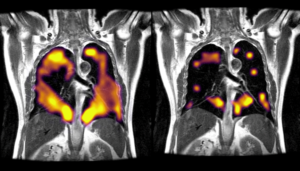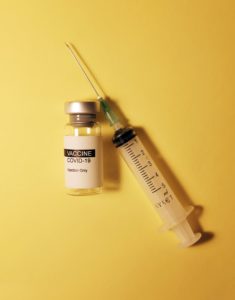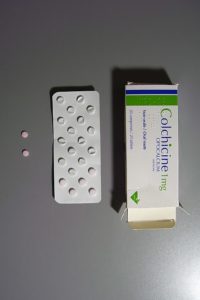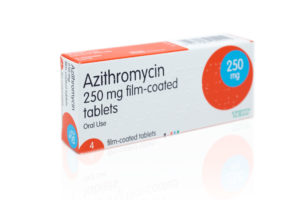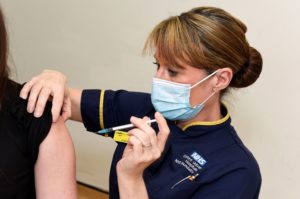A leading cardiology journal has named an academic paper written by Oxford BRC-supported researchers as its best research paper of 2020. The paper – which found that two common heart medication do not increase the risk of COVID-19 hospitalisation – was named by the BMJ Heart journal as the ... READ MORE
COVID-19 News
Liver problems common among COVID-19 patients, study finds
A study by Oxford University researchers has found that liver problems are common among patients with COVID-19. Patient data revealed that baseline hypoalbuminemia (an possible indication that the liver is producing low levels of albumin) and rising alkaline phosphatase (ALP), which can be a ... READ MORE
Oxford studies benefit from government funding of long COVID research
Thousands of people suffering with long COVID will benefit from new research programmes backed by £19.6 million to help better understand the condition, improve diagnosis and find new treatments. Among the 15 studies that will receive government funding through the National Institute for Health ... READ MORE
COVID-19 risk prediction tool wins national award
A COVID-19 risk prediction tool, developed with support from the NIHR Oxford Biomedical Research Centre (BRC) has won the Florence Nightingale Award for Excellence in Healthcare Data Analytics. The QCovid® COVID-19 Population Risk Assessment tool was developed by a cross-organisational team and ... READ MORE
Delayed second dose and third doses of the Oxford vaccine lead to heightened immune response to COVID-19
A longer delay of up to 45 weeks between the first and second dose of the Oxford-AstraZeneca vaccine leads to enhanced immune response after the second dose, the latest research by the Oxford Vaccine Group has found. They also found that a third dose given more than six months after the second ... READ MORE
Latest data on immune response to COVID-19 reinforces need for vaccination
A new study led by University of Oxford has found that previous infection, whether it was symptomatic or asymptomatic, does not necessarily protect you long term from COVID-19, particularly against new variants of concern. The PITCH Study (Protective Immunity from T cells to COVID-19 in Health ... READ MORE
Impaired antibody response to COVID-19 vaccination in patients with myeloid blood cancers
Oxford researchers have found that antibody responses to the first doses of COVID-19 vaccine in people with chronic myeloid blood cancers are not as strong as those among the general population. While this is expected to improve with the second dose, this important finding may help influence ... READ MORE
Treating needle fears may reduce COVID-19 vaccine hesitancy
A new large-scale study shows that a quarter of the UK adult population has a potential injection phobia, and these individuals are twice as likely to be put off getting a COVID-19 vaccine. The study indicates that if all injection anxiety in the population was removed, just over 10 per cent of ... READ MORE
RECOVERY Trial identifies another effective COVID-19 treatment
The RECOVERY Trial, the world’s largest randomised trial of potential COVID-19 treatments, has found that a monoclonal antibody combination developed by US company Regeneron reduces deaths for hospitalised COVID-19 patients who have not mounted their own immune response. The ... READ MORE
BRC-supported researchers recognised in Queen’s Birthday Honours
A number of NIHR Oxford BRC-supported researchers who have played prominent roles in the global response to the COVID-19 pandemic have been honoured as part of the Queen’s Birthday Honours List. The researchers, who have developed new vaccines or identified new drug treatments, have saved many ... READ MORE
RECOVERY trial finds aspirin does not improve survival for hospitalised COVID-19 patients
The RECOVERY Trial, the world’s largest randomised trial of potential COVID-19 treatments, has found that in patients hospitalised with COVID-19, aspirin is not associated with reductions in mortality or in the risk of progressing to invasive mechanical ventilation or death. In ... READ MORE
AI detects life-threatening blood vessel inflammation from COVID-19 variants
New artificial intelligence (AI) technology to scan for heightened blood vessel inflammation can calculate a person’s risk of death from COVID-19 and COVID-19 variants. The technology could be used to tailor their treatment and give them the best chance of recovery, according to new research ... READ MORE
Study confirms longer-term lung damage after COVID-19
A study by Oxford and Sheffield researchers using a cutting-edge method of imaging has identified persistent damage to the lungs of COVID-19 patients at least three months after they were discharged from hospital, and for some patients even longer. This damage was not detected by routine CT ... READ MORE
Trial finds no benefit from using colchicine in hospitalised COVID-19 patients
The RECOVERY Trial, the world’s largest randomised trial of potential COVID-19 treatments, has found no evidence that that the drug colchicine has any meaningful clinical benefits for patients hospitalised with COVID-19. Colchicine is used to treat inflammation and pain in ... READ MORE
Messaging focused on personal rather than collective benefits more effective for COVID-19 vaccination
The largest ever study of COVID-19 vaccine messaging shows that emphasising the personal benefits of vaccination may be the most effective way to persuade people who are sceptical about the jab. For the one in ten who say they won't take a COVID-19 vaccine, messaging that focuses on personal ... READ MORE
Oxford BRC researchers named among new Academy of Medical Sciences fellows
A number of leading researchers supported by the NIHR Oxford Biomedical Research Centre are among 50 prominent biomedical and health scientists elected to the Academy of Medical Sciences’ respected and influential Fellowship. The new Fellows include Oxford BRC experts who have spearheaded the ... READ MORE
Data reveals COVID-19 risk factors for people with type 1 diabetes
The largest study of people with type 1 diabetes admitted to hospital with COVID-19 has found that those with higher body mass index (BMI), poorer kidney function and the presence of microvascular complications were at greater risk of death and/or admission to intensive care. However, the ... READ MORE
Study highlights role of BMI in increased COVID-19 risks
A study by University of Oxford researchers has found that the risk of admission to hospital, admission to ICU or death from COVID-19 increases progressively above a ‘normal’ BMI of 23, even without other comorbidities. The research team, who are supported by the NIHR Oxford Biomedical Research ... READ MORE
Azithromycin not effective against COVID-19, trial confirms
A clinical trial by University of Oxford researchers has confirmed that the antibiotic azithromycin has no clinical benefit in people with moderate COVID-19. The ATOMIC2 trial, which was supported by the NIHR Oxford Biomedical Research Centre (BRC), was established to investigate if a common ... READ MORE
National survey reveals big reductions in COVID-19 infections with single dose of Oxford-AZ and Pfizer vaccines
Data from the national COVID-19 Infection Survey, which is led by senior NIHR Oxford BRC researcher Professor Sarah Walker, has revealed the impact of vaccination on antibody responses and new infections in a large group of adults from the general population. This major community surveillance ... READ MORE
- « Previous Page
- 1
- 2
- 3
- 4
- 5
- …
- 7
- Next Page »

